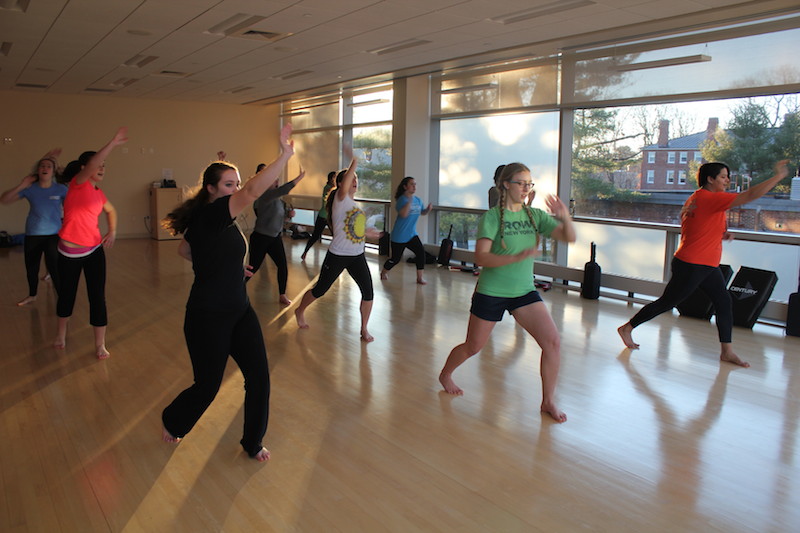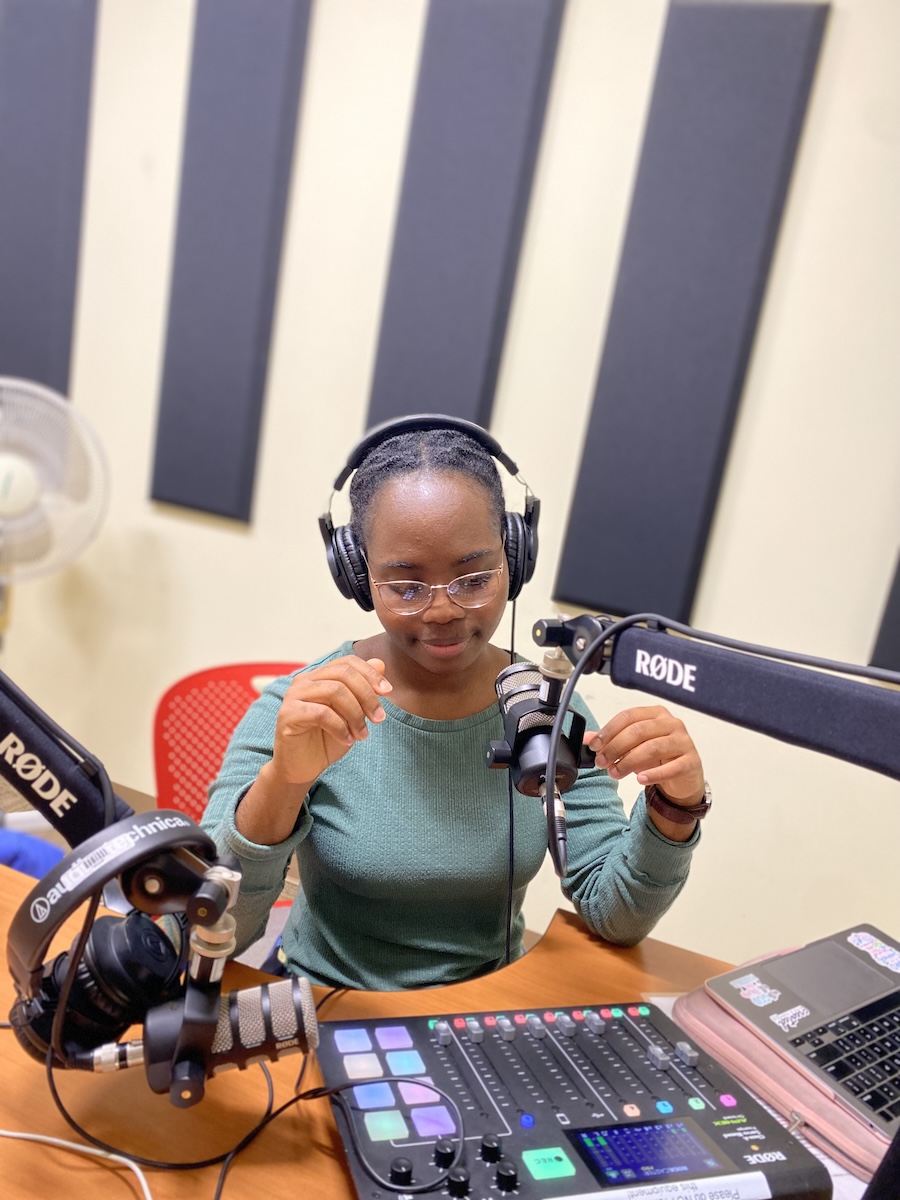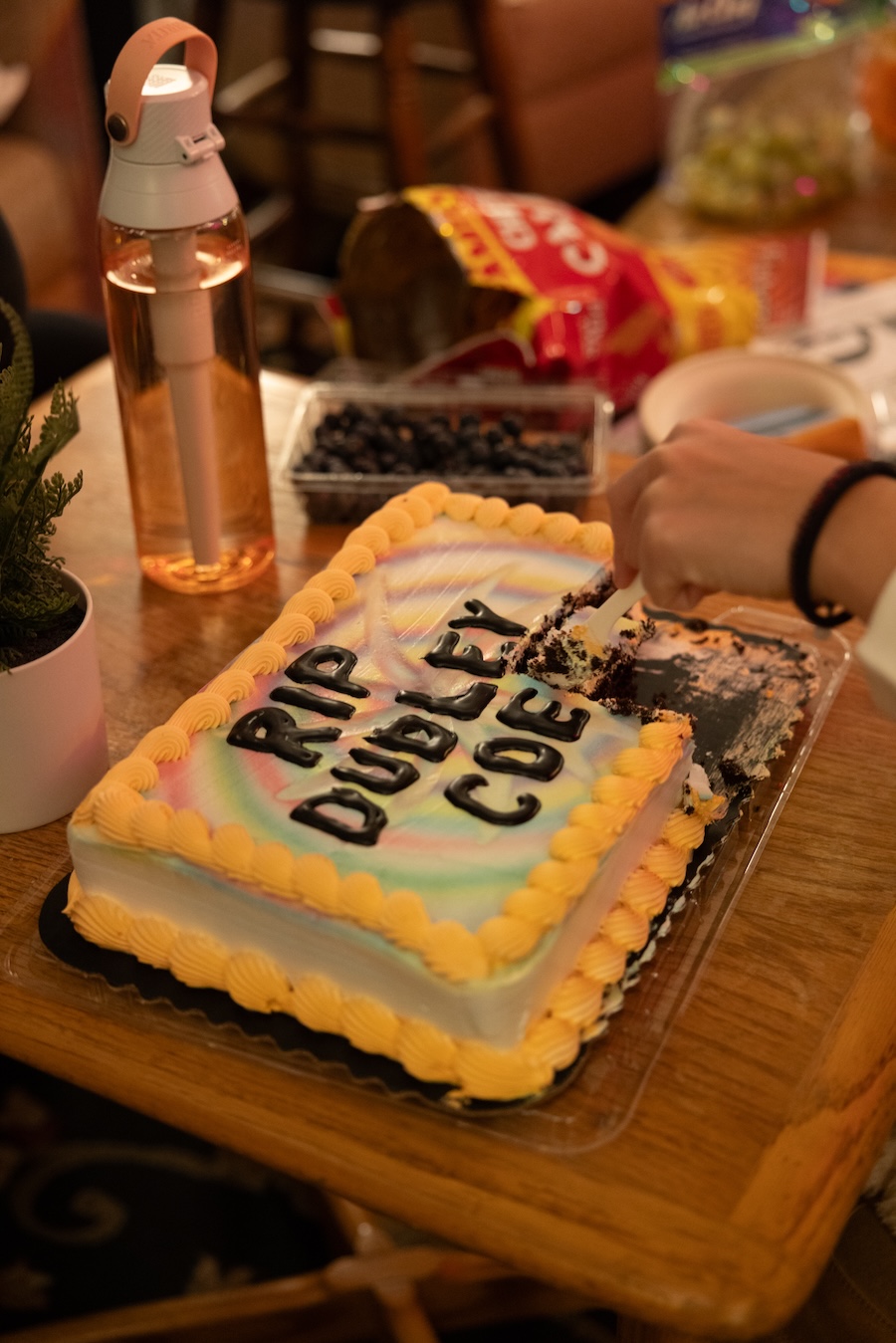Bowdoin Women's Association Keeps Up Tradition of Dialogue
By Rebecca Goldfine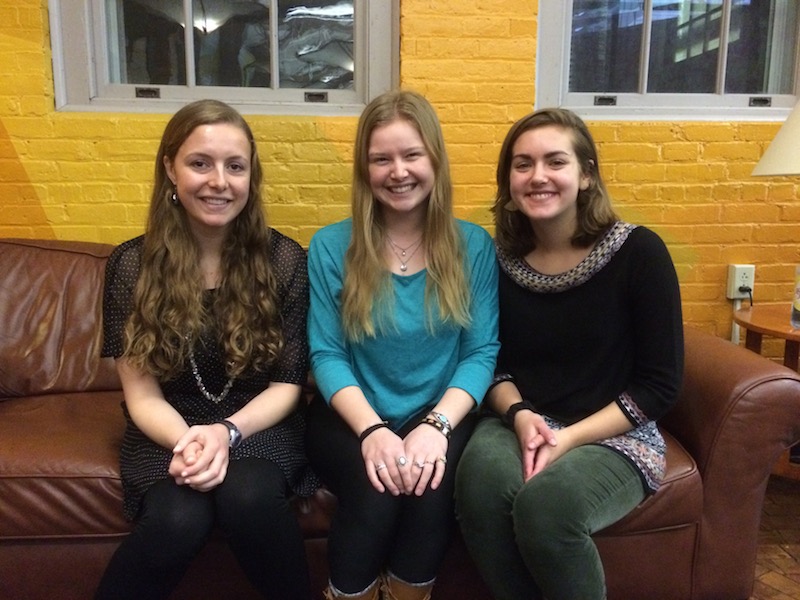
In her first month at Bowdoin, in 2012, senior Lucy Knowlton ’16 signed up for a women’s discussion group for first-year students. Although she initially did it as a whim after one of her teammates suggested it to her, the year-long experience had lasting ramifications for her. “It was one of the best parts of my freshman year,” she said. “I didn’t have a background in women’s issues. I wasn’t that in tune with gender issues before.”
Knowlton, who grew up in Turner, Maine, went on to major in history and minor in gender and women’s studies. This year, she is one of the three leaders, along with Carly Berlin ’18 and Emma Moesswilde ’18, of the Bowdoin Women’s Association discussion group.
The BWA was the first student group founded by female students after Bowdoin began admitting women in 1971, according to Melissa Quinby, director of the Women’s Resource Center. The organization tackled institutional and social issues, including advocating for more female faculty. It also was intended to provide informal spaces where women students could “articulate some of the issues they encountered at a traditionally male school.” This tradition of holding group conversations continues to form the backbone of the group today. Along with offering the discussion group, BWA also collaborates with other student groups and organizations to support programs related to gender issues.
Berlin, of Atlanta, Ga., and Moesswilde, of Belfast, Maine, completed the discussion program together last year. Berlin said the experience helped her forge friendships with other women in her class, and provided a place to have dynamic conversations about subjects rarely raised elsewhere. Moesswilde observed that “something about being with the group of women simultaneously provided a support system, helped me adjust to college and offered unbelievably stimulating conversations.”
The BWA group meets monthly on Monday nights over dinner. Two years ago, Natalie Smid ’15 and Jackie Fickes ’15 crafted a new BWA curriculum, replacing one created by an outside group that students had used for years. Each year, the two or three group leaders — all upperclass women who have completed the program — guide about 20 first-year students in conversations about such matters as authenticity, feminism, money, leadership, or body image. While the curriculum provides the foundation of the series, the leaders cater to the interests and dynamics of the unique group of women, former leader Meg Freiberger ’16 explained. “In that way, the curriculum is constantly evolving to what is most relevant and important to discuss each semester, or even each month,” she said.
Moesswilde said that following a structured lesson plan helps the group broach difficult topics, such as sexuality, and keeps them on track. “We want to expose people to so many ideas,” Knowlton added. “We could easily spend a whole year talking about just one of them.”
A second chance
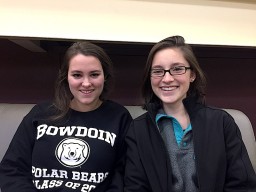
This year for the first time, two alumnae of the discussion group are offering another less formal discussion group for female students. Freiberger and Rowan Staley ’18 are leading a second gathering of women on Tuesday nights to continue chatting about some of the topics covered in the BWA curriculum, as well as to explore new areas.
In addition, this fall Freiberger and Staley organized other events for Bowdoin women, such as a self-defense class and a film night to see the abortion documentary Vessel. They also helped a local advocacy group called Grandmothers for Reproductive Rights (GRR) send thank you notes to Maine legislators. In the end, the group sent at least 1,000 letters, the students estimate. Freiberger and Staley say they want to plan more events with GRR, as well as possibly offer students a baking night, a movie night, a dessert party, yoga classes, painting classes or an outing club trip. “We are always open to suggestions and feedback from the group,” Freiberger said.
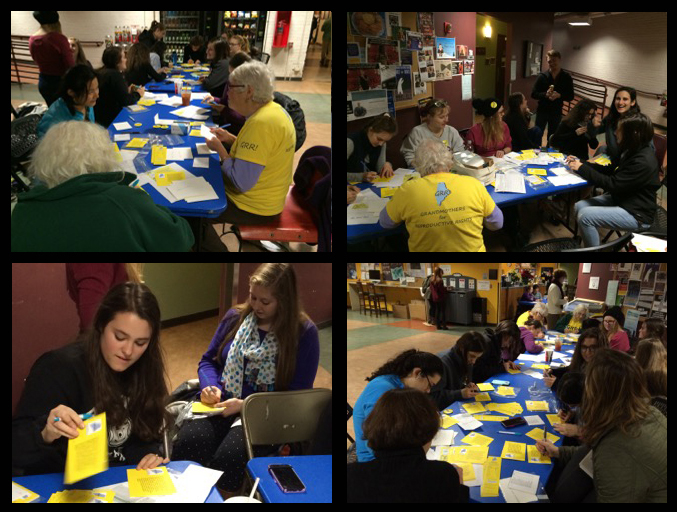
The Tuesday night conversation flows fairly freely from subjects such as resilience to self-care to violence against women; there’s no agenda, but there is a theme. To start the evening off, participants scribble down a thought, suggestion or question on a notecard that relates to the chosen theme, and these notes are drawn from a pile to spark conversations.
One of Staley and Freiberger’s objectives in starting the second discussion group was to “re-live” the experience of the BWA program; both said the experience was extraordinary. Once a student has completed the BWA first-year program, she is discouraged from repeating it to give other students the opportunity to participate. “It was a big deal to me to meet upperclass women and learn from them,” Freiberger recalled. In her sophomore and junior years, she led the BWA discussion group. “I felt there needed to be a way for women to connect in informal settings,” she added.
Part of what makes both Bowdoin Women’s Association discussion groups special, Staley added, is the chance to hear diverse perspectives from the participants. Women from different backgrounds and academic interests are encouraged to sign up for the extracurricular program. “People open up,” she said. “It’s amazing to get a group of women to open up.”
